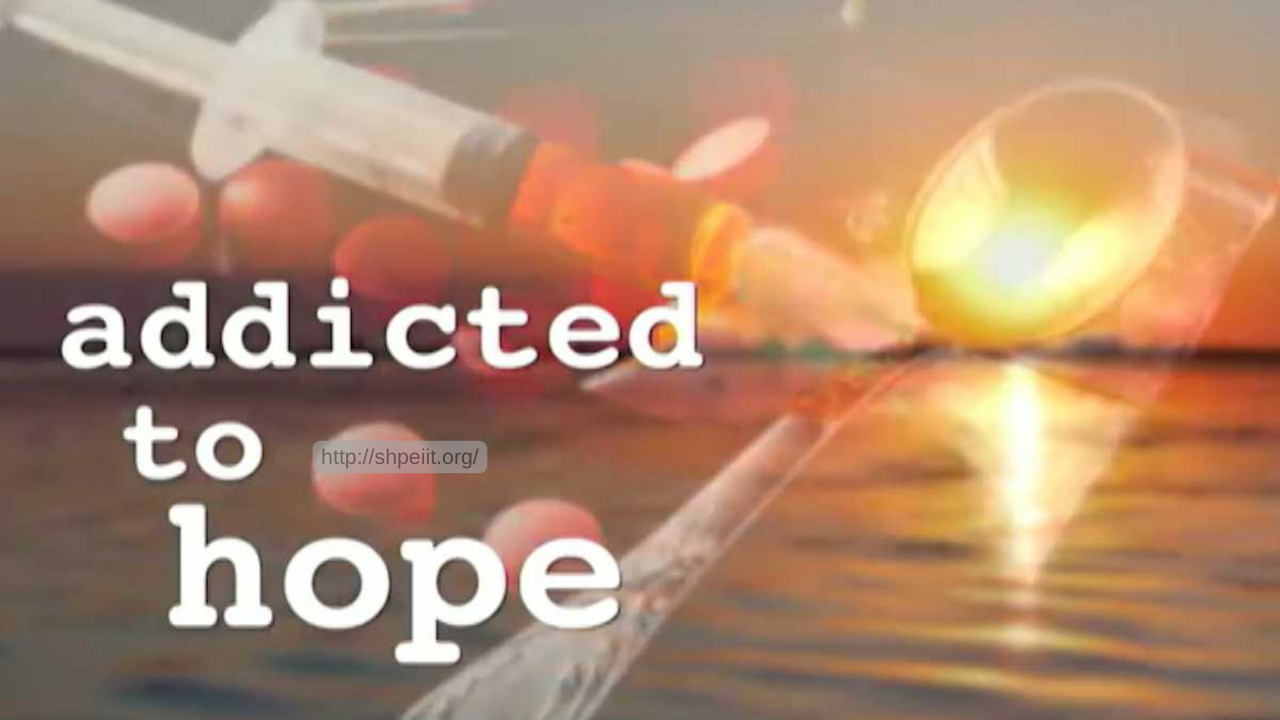The Life of a Professional Writer
The Rewards and Challenges of Professional Writing
The Therapeutic Pen: Why Writing About Addiction Can Ease Emotional Burdens
Finding Healing in Words
Recovery from addiction is more than just breaking free from substance use. It is a journey toward emotional healing, self-discovery, and renewal. For many people, one of the most powerful tools in that journey is surprisingly simple: writing. Whether through journaling, storytelling, or creative expression, writing allows individuals to release emotions, process trauma, and rebuild hope.
At SHPEIIT, we believe that healing the mind and spirit is as important as restoring the body. Through our holistic, faith-based, and individualized treatment programs, we encourage clients to explore healing methods that nurture emotional growth and inner peace. Writing is one of those tools that helps people confront their past, understand their pain, and move forward with strength and clarity.
The Healing Power of Expression
Releasing Hidden Emotions
Addiction often carries a heavy emotional burden. Feelings of shame, guilt, or grief can become overwhelming, especially during early recovery. Writing provides a safe and private space to express these emotions without fear of judgment. By putting thoughts into words, individuals can release emotional weight and begin to understand what lies beneath their addiction.
This process of emotional release often brings relief and clarity. It helps people identify patterns, triggers, and the unresolved pain that may have contributed to substance use. Over time, writing becomes a form of self-therapy, helping individuals replace emotional chaos with understanding and acceptance.
Building Emotional Awareness
Writing is more than just expression. It is reflection. When people write about their experiences, they start to see their journey from a new perspective. They learn to recognize their progress, celebrate small victories, and confront setbacks with honesty. This awareness is essential in maintaining sobriety and supporting mental health.
At SHPEIIT, our compassionate team encourages clients to develop emotional awareness through practices that connect the mind, body, and spirit. Writing is one of those bridges that helps individuals stay present and grounded in their healing.
Writing as a Path to Spiritual and Mental Renewal
Finding Meaning in the Journey
Recovery is not only about leaving addiction behind but also about discovering purpose and meaning. Writing can transform pain into purpose. Many people find that as they document their journey, they begin to see how their struggles can inspire and help others. Sharing stories of addiction and recovery promotes understanding, reduces stigma, and reminds others that healing is possible.
This sense of purpose can strengthen faith and hope. In SHPEIIT’s faith-based approach, writing becomes a way to reconnect with one’s spirituality. It can take the form of prayers, gratitude journaling, or personal reflections that renew strength through faith.
Creating a Space for Growth
Writing also fosters personal growth. It gives individuals a place to explore new goals, imagine a brighter future, and acknowledge how far they have come. Whether writing privately or sharing their story with others, individuals can use words to rebuild confidence and reclaim control over their lives.
Integrating Writing Into Holistic Recovery
At SHPEIIT, we understand that healing requires more than one approach. Our programs blend medical care, therapy, spiritual support, and creative expression. Writing can be incorporated into recovery plans to complement counseling, group therapy, and mindfulness practices.
Each story written is a step toward freedom. Every page becomes a record of courage and a reminder that recovery is not just about surviving but thriving. Writing allows individuals to connect with their inner selves and see their journey as a testimony of resilience and renewal.
Conclusion: Start Writing Your Way to Healing
The road to recovery can be difficult, but no one has to walk it alone. Writing offers a powerful way to process emotions, rebuild hope, and strengthen faith. It helps transform the weight of pain into the wisdom of healing.
If you or someone you love is struggling with addiction, SHPEIIT is here to help. Our compassionate, faith-based team provides personalized inpatient and outpatient programs designed to restore balance, peace, and purpose. Reach out today and begin your journey toward healing—one word, one story, and one day at a time.
Transforming Trauma Into Testimony: How Writing Fuels Addiction Recovery
 Finding Healing Through Words
Finding Healing Through Words
Addiction recovery is not only about overcoming physical dependence but also about healing emotional wounds. Many who begin their journey toward sobriety find that their most powerful tool for transformation is not just therapy or medication but expression. Writing allows people to process painful memories, confront difficult emotions, and make sense of their experiences. It is through this act of reflection that trauma can be transformed into testimony and struggle into strength.
At SHPEIIT, we believe that recovery involves the mind, body, and spirit. Our holistic and faith-based approach helps individuals find peace and purpose by integrating therapeutic techniques, spiritual growth, and creative outlets like journaling or storytelling. Writing is one of the many ways people can reclaim their voice and begin to heal from within.
The Power of Writing in Addiction Recovery
Turning Pain Into Purpose
Writing offers a safe and private space for individuals to explore the root causes of their addiction. By putting thoughts and emotions into words, people can understand how past trauma has shaped their behavior. This awareness is a crucial step toward healing.
When individuals write about their pain, they begin to see it not as a burden but as a source of strength. The process of turning these experiences into testimony helps them recognize how far they have come and how their story might inspire others who are still struggling.
Building Emotional Awareness and Resilience
Addiction often numbs emotions. Writing can help individuals reconnect with their feelings and learn to manage them in healthier ways. Whether through journaling, poetry, or essays, writing becomes a form of emotional release. It provides clarity, reduces anxiety, and promotes self-understanding. Over time, this practice strengthens resilience and reinforces the progress made in recovery.
How Storytelling Promotes Connection and Hope
Breaking Isolation Through Shared Experiences
Addiction thrives in secrecy and shame, but writing breaks that silence. Sharing one’s story, even anonymously, reminds others that they are not alone. When people read addiction stories filled with honesty and hope, it gives them permission to seek help and believe that recovery is possible.
This is why storytelling is so powerful. It connects individuals across different backgrounds through shared experiences of pain, perseverance, and renewal. At SHPEIIT, we encourage clients to embrace their stories as sources of light for themselves and for others walking the same path.
Empowering Recovery Through Self-Expression
The act of writing is empowering. It allows individuals to take ownership of their recovery journey. Each written word becomes a declaration of courage and commitment to a healthier, more meaningful life.
Writing also helps track progress. Looking back on past entries can reveal how much has changed. What once felt impossible now reads as proof of transformation. This perspective reinforces hope and motivates individuals to keep moving forward.
Integrating Writing Into Holistic Healing
At SHPEIIT, our programs emphasize personalized, faith-based, and holistic care. Writing can be integrated into therapy, mindfulness practices, or spiritual reflection. Whether clients write privately in a journal or share their testimony in a group setting, this process supports emotional healing, self-awareness, and long-term recovery.
Writing is not only therapeutic but deeply spiritual. It allows people to express gratitude, forgiveness, and faith. It becomes a sacred space where pain turns into purpose and trauma becomes testimony.
Your Story Can Heal You and Others
Recovery is not the end of your story. It is the beginning of a new chapter filled with hope and meaning. By writing about your journey, you can transform your pain into a message of resilience and faith. Each word written is a step toward freedom and peace.
If you or someone you care about is struggling with addiction, SHPEIIT is here to help. Our compassionate team provides individualized treatment, combining clinical expertise with spiritual guidance and holistic healing. Reach out today and begin writing the next chapter of your recovery story—one filled with strength, purpose, and hope.
From Rock Bottom to the Written Page: Finding Hope Through Addiction Storytelling
 Writing the Way to Healing
Writing the Way to Healing
For many individuals who have faced addiction, the road to recovery often begins in the darkest places. Hitting rock bottom can feel like the end of everything familiar. Yet, for some, it becomes the beginning of something new. Putting their experiences into words allows people to reclaim their voice, release pain, and begin to heal. Writing about addiction is not just about recounting struggle. It is about rediscovering hope, purpose, and strength through storytelling.
At SHPEIIT, we believe that healing involves more than physical recovery. It requires emotional renewal and spiritual growth. Through holistic and faith-based care, clients learn to express their truth, find peace in their past, and create a story of transformation that inspires others.
Why Storytelling Matters in Addiction Recovery
Turning Pain into Purpose
Addiction can take away a person’s sense of direction. Writing allows individuals to process painful memories, turning them into lessons of resilience and strength. When people tell their stories, they begin to understand how far they have come and how much they have learned along the way. This sense of purpose gives recovery deeper meaning and motivation.
Reducing Shame and Stigma
For many, addiction carries deep shame. Writing helps release those emotions by transforming private pain into shared understanding. When people share their stories publicly or privately, they challenge stereotypes and show that recovery is possible. Storytelling becomes a bridge between isolation and connection, allowing others to see addiction through a lens of compassion and hope.
Reclaiming Control and Identity
Addiction often leaves individuals feeling powerless. Through writing, they regain control of their narrative. They are no longer defined by their addiction but by their courage to rise above it. Each written word becomes a declaration of strength, helping to rebuild a sense of self and confidence.
The Healing Benefits of Writing
Emotional Clarity and Reflection
Writing helps individuals organize their thoughts and emotions. By journaling or crafting personal essays, people can better understand their triggers, relationships, and progress. This emotional clarity supports ongoing recovery and prevents relapse by creating awareness and accountability.
Building Resilience
Recovery is not a straight line. Writing about setbacks and victories builds emotional resilience, reminding individuals of their ability to overcome challenges. It becomes a tool to measure growth and celebrate progress, even when the path feels uncertain.
Connecting Faith and Recovery
At SHPEIIT, we recognize the power of faith in healing. Writing can become a spiritual exercise, helping individuals connect with a higher purpose and find strength through prayer and reflection. Whether it is through gratitude journaling or faith-based storytelling, this process helps nurture inner peace and hope.
How SHPEIIT Supports Holistic Healing
Our team at SHPEIIT provides comprehensive care that addresses the mind, body, and spirit. Through individualized inpatient and outpatient programs, clients receive professional therapy, medical support, and opportunities for personal growth. Writing can be incorporated into these programs as a powerful therapeutic tool.
By combining evidence-based treatment with faith-centered healing and creative expression, individuals learn to turn their recovery into a meaningful life story. Every sentence written becomes a step away from pain and closer to purpose.
Your Story Can Inspire Healing
From rock bottom to recovery, every story matters. Writing about addiction is not just a way to look back on the past but a path toward building a brighter future. It reminds people that even in their lowest moments, hope is possible.
If you or someone you love is ready to begin their recovery journey, SHPEIIT is here to help. Our compassionate team offers holistic, faith-based, and personalized care designed to meet each person’s unique needs. Reach out today and start writing your own story of healing and renewal.
